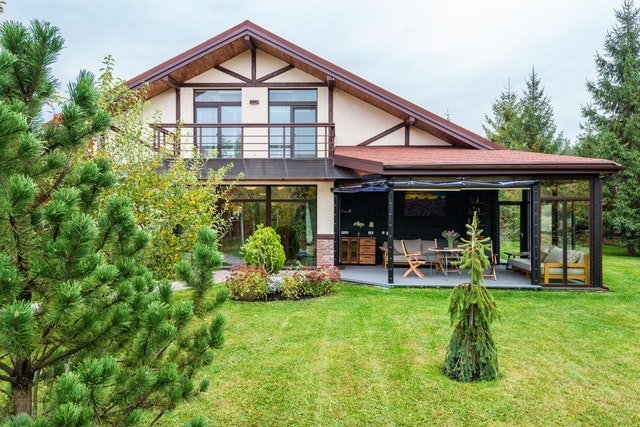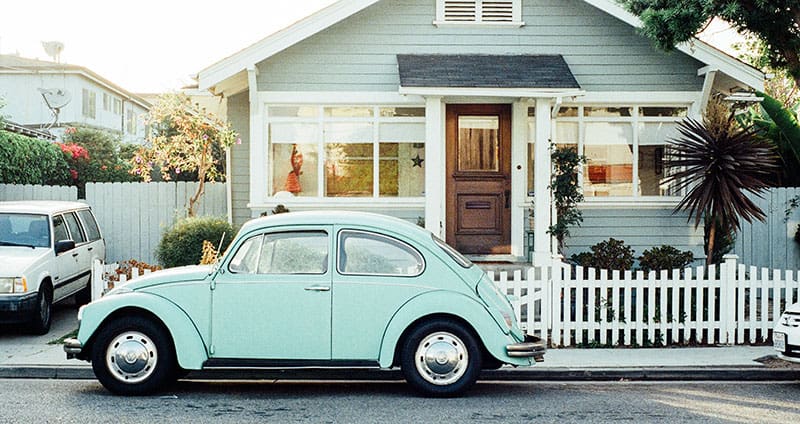House Hunting Checklist [150+ must-haves & criterias]
You are ready to find the right home: You have a budget. You know your affordability amount. You’re pre-approved for a loan. You’re working with a realtor, or you are comfortable working on your own. You know your timeline.
You’re now a highly qualified buyer; the only thing standing in your way is finding that perfect house. The excellent home search checklist has begun!

House criteria checklist
Room By Room House Hunting Checklist
Living room & family rooms
- Does it have an open or closed layout? What do you prefer?
- What is the flooring made of? Wood, tile, carpet, other?
- Does the room receive a lot of light?
- What type of lighting fixtures are used?
- Is there a ceiling fan?
- Are there skylights?
- Is there a fireplace?
Bedrooms
- How many bedrooms are there?
- How many bedrooms are upstairs? Downstairs? Basement?
- How large is each room?
- What is the flooring made of in each bedroom? Wood, tile, carpet, other?
- Does each bedroom have a closet? Walk-in or sliding door?
- Does each room get enough natural light?
- What type of light fixtures are in the room?
- Is there a ceiling fan in each room?
Bathrooms
- How many full bathrooms are there?
- How many showers?
- How many bathtubs?
- How many half bathrooms are there?
- Is there a separate (ensuite) master bathroom?
- What is the flooring made of in each bathroom? Wood, tile, carpet, other?
- Does each bathroom have proper ventilation? Is there a window or fan?
- How much storage is there? Are there cabinets, medicine cabinets, or below-sink storage?
- Do the faucets work? Are there any signs of leaking?
- Are there any visible signs of mildew or mold?
Kitchen
- Is there enough counter space?
- Is there enough storage space? Pantry, storage cabinets, etc.
- What material is used for the countertops? Marble, granite, tile, laminate, other?
- What is the flooring made of? Wood, tile, carpet, other?
- How old are the appliances? Will they need to be replaced?
- Is the stove gas or electric?
- Is it included in the purchase?
- Is the refrigerator built-in?
- Is it included in the purchase?
- Is there a microwave? Is it built-in?
- Is it included in the purchase?
- Is there a dishwasher? Is it built-in?
- Is it included in the purchase?
- Does the kitchen sink have any features?
- Garbage disposal?
- Water filter system?
- Extendable nozzle? Spray head?
- Is there a kitchen island?
- Does the island have power or electrical outlets?
- Is there a dining area in the kitchen?
- Is the kitchen accessible from the living room? Dining room?
Laundry
- Is there a laundry room? Where is it located?
- What is the flooring made of? Wood, tile, carpet, other?
- Is there storage?
- Is there a sink?
- Is there a washer and dryer?
- Are they built-in?
- Are they included in the purchase?
- Will they need to be replaced in the next few years?
Basement
- Are the walls finished?
- Is the ceiling finished?
- Is the ceiling high enough?
- What is the flooring made of? Wood, tile, carpet, other?
- Is it properly ventilated? Windows or a fan?
- Are there any signs of mold or mildew?
- Is there any visible water damage or flooding?
- Is there a sump pump in the basement?
Garage
- Is there a garage?
- How large is it?
- Is there direct access from the house?
- Is there any storage space? Cabinets?
- Is the floor finished or concrete?
- Are there any cracks in the concrete?
- Does the garage door function properly?
Outdoor space
- Is the front yard landscaped?
- Is there a front porch? Will it require significant maintenance?
- Is there a backyard? Is it landscaped?
- Is there a deck or balcony in the backyard? Will it require significant maintenance?
- Is there a patio cover? Does it receive a lot of sun?
- Is there room for patio furniture?
- Is there a built-in grill?
- Is it gas, propane, or electric?
- Does it work? Will it need to be replaced?
- Is there a pool?
- Is it in-ground or above ground?
- Is there a spa or jacuzzi?
- Are there any cracks in the pool wall or surrounding areas?
- Are all the critical systems for the pool working?
- Is the backyard fenced in? Does it require significant maintenance or need to be replaced?
- Is there a garden?
- Is there a view?
General
For more detail on electrical, plumbing, roofing, foundation, and other critical systems, check out our DIY home inspection checklist with 80+ items to check.
- Does the house have central air?
- Does the house have central heating?
- Is there a separate office area or den?
- Is the roof in good shape?
- Is the siding of the house in good shape?
- Does the home require a new coat of paint?
- Is the electrical system up to code?
- Is the plumbing system up to code?
- Are the windows in working order? Single pane or dual pane?
- Is the foundation in good shape?
- Is there proper draining in case of a storm?
Finding the right house

House features checklist
Looking for houses can be one of the most fun and frustrating (frustrating?) experiences ever. Having a clear idea of what you want (and what your deal breakers are) can make this process infinitely easier.
If you are shopping with a spouse, significant other, or partner, have this discussion long before you step foot into an open house. Few things are less productive than a couple hashing it out in the living room of a stranger’s home after a long, unsuccessful day of showings.
How long will you be in the home?
One important consideration here is how long you plan to live in your new home. This is where the FOMO kicks in for many people.
You may start thinking, “If I live in one spot for five years, I’ll never be able to make that 18-month around-the-world trip.
How will I make my travel blog where I plank in front of international landmarks?” And to that, we say planking hasn’t been cool since 2011, get it together!
But seriously, people are generally more rooted than they would like to admit. Do you live near family? Close friends? How tied are you to your job? Is your industry rooted in your current city? Any one of these things could keep you in a city long-term.
In many cases, the house is not the thing that anchors you.
Before buying, it’s good to consider at least where life will take you in the next few years. For instance, do you want a dog in the future? Then having a yard may be necessary.
Are you thinking of going freelance or starting a small business? Then you may want some space for a home office or workspace. Plan on having kids anytime soon?
It might be easier to save a little more for your down payment and get that extra bedroom now instead of racing to upgrade your home before your baby comes.
You may even decide to rent that spare room out on a site like Airbnb or Home Away, which could help cover your mortgage payment.
What will you do with the home when you’re ready to leave?
Another consideration is what to do when you’re ready to move out of your new home. Is your goal to convert the home to a rental property when you’re ready to move?
Are you more concerned with making a good investment and having the home appreciate over the next few years? Or is your primary goal to find a home you love?
Even if you aren’t sure, considering your exit scenario may be helpful while you are house hunting.
And if your future goal is to do your around-the-world plank-a-palooza? Perfect! Look for a home in a desirable rental neighborhood. With a bit of effort now, you may be able to make some money every month by renting the home during your trip.
The trick here is understanding what you want and where you’re going in life vs. realizing you’ve missed something after it’s too late. (Admittedly, this is easier said than done.) These are great conversations to have with your realtor and loan officer as well.
If they understand your perspective, they can refine the types of homes or loan products they recommend, making your purchasing process much more efficient. Your team will be firing on all cylinders.
Finding the right neighborhood

Home features checklist
Exploring different neighborhoods might be the best part of the home buying experience. There’s nothing like cruising the streets in an area, looking at the houses, discovering parks, restaurants, coffee shops, and talking to your potential new neighbors.
When you are weighing locations, it’s essential to consider what you want from your neighborhood. Do you prefer privacy, or do you want to join a thriving community?
Do you want walkability? Does the local school system impact your decision? How long are you willing to commute every day? Do you want to live nearby to friends or family?
Sound overwhelming? An excellent way to start is understanding how much mortgage you can afford and then seeing what the home prices are like in the neighborhoods you like.
Another easy way to answer these questions is to determine what you do not want. List all the things that drive you crazy now, rank the priority, and do the opposite.
Pro-tip: If you’re buying with another person, it’s important to work together to determine your needs, wants, and must-haves when it comes to your new home.
Once you have an idea of what you are looking for, it’s time to do your research. When assessing a neighborhood, here are a few things to consider:
- Safety – Above all else, you want to live somewhere safe. Neighborhood-level safety info can be hard to find. Trulia has a crime map you can explore.
The FBI consolidates crime reports, and you can look up your potential neighborhoods in their database.
The National Archive of Criminal Justice Data also has its National Crime Victimization Survey — a massive Excel file you can download and comb through. But nothing beats a simple call to the local police station! - Economic factors – How do the home prices in this neighborhood line up against your affordability?
Few things are worse than finding the perfect house and then realizing it’s just outside of your price range. - Market factors – What is the local real estate market doing in the neighborhood? Some basic things to look for:
- Are homes going up or down in value?
- How is the inventory? Are there a lot of listings or just a few?
- How quickly are the homes selling? Is it a competitive market, or can you take your time shopping?
- Are there foreclosures in the area? If there are many foreclosures, this is usually a red flag, especially if the homes are on the market for months or years at a time. This can make things difficult when it comes time for you to sell your home.
- Are there a lot of rentals in the area, or is it more homeowners? Homeowners tend to be rooted, where rental neighborhoods can have high turnover.
- How does the neighborhood compare to those around it?
Pro-tip: You can check out the Case Schiller index to see home price trends both nationally and in some major metro areas.
- Convenience – We love Walk Score. It is an excellent research tool when comparing neighborhoods. Pop in a property address, and you can quickly see the nearest grocery stores, restaurants, coffee shops, and bars. Do these places line up with your expectations?
Once you have a few neighborhoods in mind, the following critical thing you need to do is visit. Some people may hesitate or skip this step, and it’s (in our opinion) a mistake.
You’ll learn more in an hour’s visit than you would do 10 hours of research online.
Walk the shops. Have a meal there. See if it smells funny. Seriously — if the whole neighborhood reeks of Sriracha, that may be a deal-breaker for you (or a bonus?).
We also recommend visiting a few times and at different times of the day. It’s always good to compare a weekday morning to a weekend night, especially with local school traffic.
The best thing you can do on these visits is talk to people. Find a friendly bartender, or strike up a conversation with a local at a coffee shop.
People tend to take pride in where they live and will be happy to tell you all about their neighborhood. If no one wants to talk to you, or you can’t find someone to talk to, that’s just as telling!
Rank your priorities
Having realistic expectations here is critical. It may be impossible to find that perfect craftsman house that’s old but not too old, offset from the street and private, with a large backyard, that backs up to a park, with tons of street parking, in the middle of the city, walking distance to your favorite bar, biking distance to work, and just far enough from your mother that she has to call before coming over.
We find it helpful to make a list. (Who doesn’t love lists?!) Create a few columns: needs, wants, nice to have, and deal-breakers. Then go through and start adding different amenities to each column.
If you’re buying with another person, romantic or otherwise, it’s a good idea to have both people do this and compare notes.
Home showings & open houses
We love looking at houses — there’s a joy to it that cannot be substituted.
Walking through a home and trying to see yourself living there is fun. What color would you paint the walls? How would you arrange your furniture? What would it be like to have friends over? How would you fix that hideous bathroom?
In many cases, you’ll walk in and realize a house just isn’t the one. It looked good online, but in person, the floor plan makes the place feel like the Winchester Mystery House.
This part of the process can get draining after a while, which is why patience is vital. It’s easy to get frustrated and give up, or worse, make an offer on the house you’re not excited about.
There are a few things we recommend doing for every house you are at least somewhat interested in.
- Using our checklist can be a huge help!
- Take notes about each property as you walk through it. Listing information doesn’t always capture things like appliances, garage space, laundry room info, etc.
Make sure you “fill the gaps” so you can reference the information later when trying to determine your offer price. - Be sure to take a ton of pictures. You’ll usually have a limited time exploring the home, and it’s not uncommon to see four or five houses in a weekend.
Having photos of critical areas of the house will help you weigh your options later. - It may also help to take a video as you walk through the home. You can play this back later to remind you where, exactly, that second bathroom was.
- Pro-tip: Bring a measuring tape and something to capture the measurements with you to showings and open houses.
A quick sketch of the floor plan with some rough measurements will always be helpful when weighing your options. - Make notes about the area as well. Often, you’ll also learn things that would never be in a listing.
- Is the house on a busy street with lots of traffic noise?
- Does the next-door neighbor look like they’re running a junkyard?
- How motivated is the seller?
- How old is the roof?
- Is there an interesting history of the property or the neighborhood?
It’s a marathon, not a sprint
Try to stay positive through this process. House hunting can take months. Try to enjoy the process, and don’t let it stress you out. If you spend months searching, make sure to keep your realtor and loan officer in the loop.
When the right home comes, you will want to be prepared and move quickly. And if you decide that buying isn’t right for you, that’s okay!
This process isn’t that different if you’re buying or renting a single-family house. Either way, when you move, you’ll be making an informed decision.